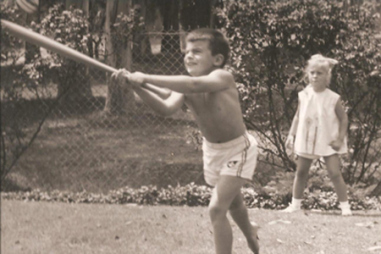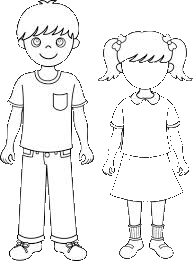Diary of a Homeless ASD Sibling
I never imagined that my life would turn out like this.
My college friends are all in their 50s now, as am I, and most of them are homeowners, as was I. Telling them, one by one, that I���d fallen on hard times and asking if I could stay in their spare bedroom for a few months felt like the right thing to do. Their kind hospitality which usually lasted a few months at a time came with expiration dates. I can’t really blame them though. They had lives of their own to navigate, including grown children coming home from college who needed the spare bedroom.
Fortunately, my last friend’s hospitality was open-ended. He said that I could stay in his spare bedroom as long as I needed to get back on my feet. ��His��thoughtful gesture has given me time and space to think about how to move forward with my life and most importantly, how my role as an ASD sibling has colored my descent into homelessness.
My brother is on the high-end of the autism spectrum. His impairment is not severe, but it is significant enough that it effected our growing-up years and beyond. He���s older than I am by two years.
I remember a time when we were very young and my brother���s classmates told him that the following day was “costume day.” He came home from school that day and made sure that our Mom could spend the evening putting together a costume for him. When he arrived at school the following day in full-costume, he was the only one wearing a costume, and spent the day being bullied by anyone who saw him.
My brother also struggled mightily in team sports. I can still envision him looking dejected as he stood outside a circle of his classmates while they were choosing��teams. It was painful to watch. My habit of absorbing sadness and keeping it to myself was already pretty well etched into my personality by then, so I kept it to myself.
 To add to the ���sports��� issue, I was the one who ended up with the athletic genes���not a happy surprise to my parents or to anyone else who knew us. Not only was an athletic girl frowned upon when we were growing up (1960s and 1970s), but unfortunately my abilities��highlighted my brother’s inabilities, which of course grew into an unspoken wedge between us. It was never formally discussed, but it was definitely the elephant in the room during many “family” occasions.
To add to the ���sports��� issue, I was the one who ended up with the athletic genes���not a happy surprise to my parents or to anyone else who knew us. Not only was an athletic girl frowned upon when we were growing up (1960s and 1970s), but unfortunately my abilities��highlighted my brother’s inabilities, which of course grew into an unspoken wedge between us. It was never formally discussed, but it was definitely the elephant in the room during many “family” occasions.
Despite the potential for a horribly fractious relationship, the bond between my brother and me was tight. I took it upon myself to own part of his plight. His struggles were my struggles. When he was bullied at school (by classmates) and also at home (by our father), I felt his frustration acutely. As his isolation grew, my own sadness intensified. I felt like if I moved forward in my own life, I would be wrongfully leaving him behind. Unwittingly, I became invisible and started feeling like I was “just along for the ride.”
Every year on my brother���s birthday, from the time he was a young boy until now, I go through a mental checklist to make sure he is on the right track. Does he have anyone he considers a true friend? What kind of gadgets (e.g., computer components, remote-controlled flying devices, audio and video equipment) does he have and are they making him feel good about himself? How is he doing with his career? How old is his dog? How will he move forward when his dog dies? Is he too stuck in a routine? Is he exercising regularly? Eating healthy? Does he feel loved? Safe? Is he OK spending his birthday alone? All responsibilities normally assumed by parents.
I fully understand that my descent into homelessness is not entirely attributable to being an ASD sibling. There were plenty of other factors: I was laid off from my job (age 50) precisely when the recession was gaining steam; my son was a senior in high school at the time and as a single mother, my priority was to get him through college; and I sold my home at a time when the real estate market was at an all-time low. The most enduring result of those events was that as time wore on, I was both aging myself out of the job market and simultaneously extending my personality traits��as an ASD sibling.
I���ve been to three states in the last two years as a homeless person, imposing on old college friends and acquaintances whom I hadn���t talked to since my twenties. I spend my days looking for work, writing, figuring out my past, discovering what I���m good at, and deciding how to spend the rest of my years��earning a living doing something that I enjoy. It has not been a happy journey, but an important one.
Wherever I���m staying, I try to make myself as invisible as possible. I give the homeowner as much space as I can by going to the local library during the day, and by eating, drinking, and using the bathroom as infrequently as possible, while still maintaining my health. I think it���s when I find myself being as quiet as possible so that I don���t disturb the homeowners that I���m most aware of the person I���ve become as an ASD sibling.
 I try to blend in to the “rhythm” of the household as best as I can���again something that I learned from being an ASD sibling. For example, if one of the homeowners leaves for work at 8:00am, I try to leave the house by 7:30am and sit in my car until the library opens at 9:00am. I usually alternate my visits to various local libraries so I’m not recognized at any one particular branch. Then at the end of the day, depending on the library���s closing time, my intent��is always not to return ���home��� until the homeowners have had a chance to return from work and settle-in for the evening. I feel like that���s the best time for me to slip in unnoticed.
I try to blend in to the “rhythm” of the household as best as I can���again something that I learned from being an ASD sibling. For example, if one of the homeowners leaves for work at 8:00am, I try to leave the house by 7:30am and sit in my car until the library opens at 9:00am. I usually alternate my visits to various local libraries so I’m not recognized at any one particular branch. Then at the end of the day, depending on the library���s closing time, my intent��is always not to return ���home��� until the homeowners have had a chance to return from work and settle-in for the evening. I feel like that���s the best time for me to slip in unnoticed.
There are more behaviors of mine that have spilled over from my growing-up years: when I go to the grocery store, I swipe my EBT card (food stamps) as quickly as possible at the cash register hoping that a conversation with the checker won’t ensue that might call attention to my plight; I always pick the least visible spot at the library so that as few people as possible know that I’m there; I habitually gauge the homeowner���s stress-level and retreat to my room accordingly; and I feel happy and safe alone for hours in the spare bedroom of whatever home I’m staying in.
Two things that I could never have pondered if my final college friend hadn’t declared his hospitality open-ended. His kindness has��given��me the opportunity��to think about��my future, and above all, to figure out who I am outside of my role as an ASD sibling���something I’d never considered before.
My goal at this point��is to let go of useless mental calisthenics like the birthday checklist that I���ve been revisiting��for so long. My brother is settled now. He makes a good living as a software engineer, owns his own home, and has become a talented chef. He also has a beautiful dog whom he adores, and who has become an important companion in his life. It���s time for me to concentrate on me.
My brother has been angry with me since I’ve been homeless. He barely speaks to me. I don���t fully know why but I can guess that he feels like I���m no longer there for him. If I could talk to him, I would ask him to please not be angry with me. I would tell him how much I love him and miss him, how important he is to me, and that every day I learn something new about myself because of my love for him. I���d tell him that being his sister has given me the courage to finally figure out where I fit in this world and the strength to start over.
The immediate needs of children with an Autism Spectrum Disorder (ASD) often��overshadow the less-immediate needs of their siblings. I’m hoping that this blog post will shed light on some of the often-overlooked��challenges faced by ASD siblings.��
- Trish Thorpe (January 2015)
http://amzn.com/B00BPWC5L4




